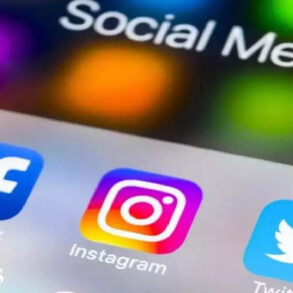
TRENTON, NJ – A recent internal poll conducted by Shore News Network shows that people who gave up social media are happier today than they were when they were constantly swiping through social media posts for hours on end. The internal poll also found that nearly 30% of those polled who still use social media are hoping to reduce their time on social media apps in 2024.
The poll was conducted with 100 social media users in the Central New Jersey region between the ages of 35-55 years old representing a 50-50 gender split.
In our digitally-driven world, social media is as ubiquitous as the air we breathe. With smartphones in hand, we are constantly bombarded with notifications, status updates, and an endless stream of content. While these platforms promise connection, the reality for many is quite different—a source of stress, anxiety, and self-doubt. However, a growing number of people are choosing to disconnect from social media, and they’re discovering significant mental health benefits in the process.
A Breather from the Digital Noise
The immediate benefit of stepping away from social media is the reduction of ‘noise’. Social media platforms are designed to be addictive, utilizing algorithms that tap into our deepest desires for approval and attention. By quitting social media, individuals remove a major source of stress and distraction, leading to clearer thoughts and a more focused mind.
Improved Self-Esteem and Real-World Connections
Social media often presents a distorted reality—where everyone else’s life seems perfect compared to our own. This can lead to significant drops in self-esteem and personal satisfaction. Those who quit social media report a relief from the constant comparisons and a renewed ability to appreciate their own lives without the filter of the internet.
Moreover, quitting social media opens up more time for face-to-face interactions, which are crucial for mental health. Real-world connections are more fulfilling and provide emotional support that virtual interactions simply cannot match.
A Shift in Perspective
Without the constant bombardment of curated personal achievements and materialistic displays, individuals often find a new perspective on what is truly important. Freed from the pressures of maintaining a certain online image, there is more room to pursue activities that bring genuine joy and satisfaction.
Scientific Backing
Studies support these anecdotal benefits. Research indicates that heavy social media use can increase feelings of anxiety and depression, particularly among adolescents and young adults. Conversely, studies show that participants who reduce their social media usage can see improvements in their overall well-being, reduced anxiety and depression levels, and better sleep patterns.
Personal Stories
Take, for example, Sarah, a former social media addict who decided to quit after realizing how much of her time was consumed by her digital devices. Two months post-social media, she reports feeling ‘liberated’ and more connected to her immediate environment. Her weekends are now spent engaging in hobbies like painting and hiking—activities she never had time for when caught up in the digital whirlwind.
Making the Change
If you’re considering a break from social media, start with small steps. Designate ‘social media free’ times during your day or week. Observe how this impacts your mood and relationships. For many, the positive changes lead to a more permanent shift away from social media.
Quitting social media is not a magical cure for all mental health issues, but for those who find these platforms more draining than useful, stepping back can be incredibly beneficial. As more people share their positive experiences, it becomes clear that life off the social media grid is not only possible but can be profoundly satisfying. In the quest for better mental health, sometimes, less really is more.




